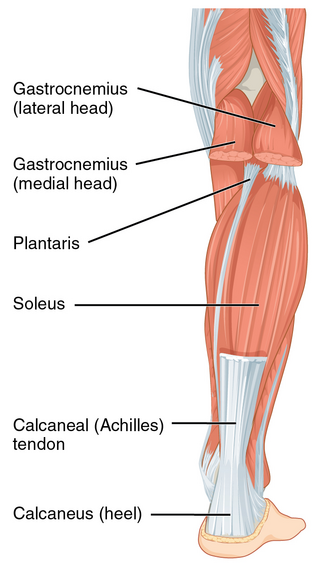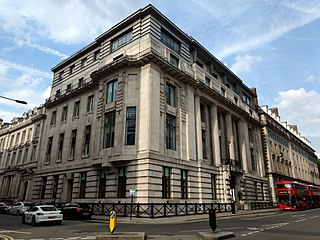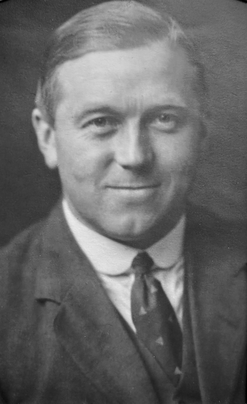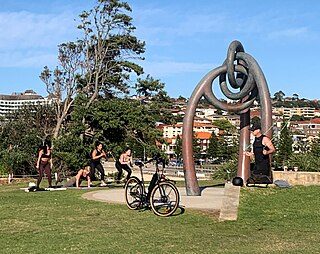
The history of medicine is both a study of medicine throughout history as well as a multidisciplinary field of study that seeks to explore and understand medical practices, both past and present, throughout human societies.

Pediatrics is the branch of medicine that involves the medical care of infants, children, adolescents, and young adults. In the United Kingdom, paediatrics covers many of their youth until the age of 18. The American Academy of Pediatrics recommends people seek pediatric care through the age of 21, but some pediatric subspecialists continue to care for adults up to 25. Worldwide age limits of pediatrics have been trending upward year after year. A medical doctor who specializes in this area is known as a pediatrician, or paediatrician. The word pediatrics and its cognates mean "healer of children", derived from the two Greek words: παῖς and ἰατρός. Pediatricians work in clinics, research centers, universities, general hospitals and children's hospitals, including those who practice pediatric subspecialties.

Veterinary medicine is the branch of medicine that deals with the prevention, management, diagnosis, and treatment of disease, disorder, and injury in animals. Along with this, it deals with animal rearing, husbandry, breeding, research on nutrition, and product development. The scope of veterinary medicine is wide, covering all animal species, both domesticated and wild, with a wide range of conditions that can affect different species.

Creatine is an organic compound with the nominal formula (H2N)(HN)CN(CH3)CH2CO2H. It exists in various tautomers in solutions. Creatine is found in vertebrates where it facilitates recycling of adenosine triphosphate (ATP), primarily in muscle and brain tissue. Recycling is achieved by converting adenosine diphosphate (ADP) back to ATP via donation of phosphate groups. Creatine also acts as a buffer.

The Achilles tendon or heel cord, also known as the calcaneal tendon, is a tendon at the back of the lower leg, and is the thickest in the human body. It serves to attach the plantaris, gastrocnemius (calf) and soleus muscles to the calcaneus (heel) bone. These muscles, acting via the tendon, cause plantar flexion of the foot at the ankle joint, and flexion at the knee.

A concussion, also known as a mild traumatic brain injury (mTBI), is a head injury that temporarily affects brain functioning. Symptoms may include loss of consciousness; memory loss; headaches; difficulty with thinking, concentration, or balance; nausea; blurred vision; dizziness; sleep disturbances, and mood changes. Any of these symptoms may begin immediately, or appear days after the injury. Concussion should be suspected if a person indirectly or directly hits their head and experiences any of the symptoms of concussion. Symptoms of a concussion may be delayed by 1-2 days after the accident. It is not unusual for symptoms to last 2 weeks in adults and 4 weeks in children. Fewer than 10% of sports-related concussions among children are associated with loss of consciousness.
Sports science is a discipline that studies how the healthy human body works during exercise, and how sport and physical activity promote health and performance from cellular to whole body perspectives. The study of sports science traditionally incorporates areas of physiology, psychology, anatomy, biomechanics, biochemistry, and kinesiology. Sports scientists and performance consultants are growing in demand and employment numbers, with the ever-increasing focus within the sporting world on achieving the best results possible. Through the scientific study of sports, researchers have developed a greater understanding of how the human body reacts to exercise, training, different environments, and many other stimuli.

Sports medicine is a branch of medicine that deals with physical fitness and the treatment and prevention of injuries related to sports and exercise. Although most sports teams have employed team physicians for many years, it is only since the late 20th century that sports medicine emerged as a distinct field of health care. In some countries, sports medicine is a recognized medical specialty. In the majority of countries where sports medicine is recognized and practiced, it is a physician (non-surgical) specialty, but in some, it can equally be a surgical or non-surgical medical specialty, and also a specialty field within primary care. In other contexts, the field of sports medicine encompasses the scope of both medical specialists and also allied health practitioners who work in the field of sport, such as physiotherapists, athletic trainers, podiatrists and exercise physiologists.

The Royal Society of Medicine (RSM) is a medical society based at 1 Wimpole Street, London, UK. It is a registered charity, with admission through membership.

Radial neuropathy is a type of mononeuropathy which results from acute trauma to the radial nerve that extends the length of the arm. It is known as transient paresthesia when sensation is temporarily abnormal.

An anterior cruciate ligament injury occurs when the anterior cruciate ligament (ACL) is either stretched, partially torn, or completely torn. The most common injury is a complete tear. Symptoms include pain, an audible cracking sound during injury, instability of the knee, and joint swelling. Swelling generally appears within a couple of hours. In approximately 50% of cases, other structures of the knee such as surrounding ligaments, cartilage, or meniscus are damaged.

Sir John Fraser, 1st Baronet, was Regius Professor of Clinical Surgery at Edinburgh University from 1925 to 1944 and served as principal of the University of Edinburgh from 1944 to 1947.
John Lloyd Chipembere Lwanda is a Malawian medical doctor, writer, poet, researcher, publisher, and music producer. He is a published author and also a publisher of books and music. He was an honorary senior lecturer at the University of Glasgow Department of Primary Care until 2005. Lwanda did his history and social science PhD at the University of Edinburgh's Centre of African Studies.
Saumitra Rawat is an Indian surgical gastroenterologist and the head of Surgical Gastroenterology and Liver Transplant at Sir Ganga Ram Hospital, New Delhi. The Government of India honoured him in 2015 with the award of Padma Shri.

Alcohols, in various forms, are used within medicine as an antiseptic, disinfectant, and antidote. Alcohols applied to the skin are used to disinfect skin before a needle stick and before surgery. They may be used both to disinfect the skin of the person and as hand sanitizer of the healthcare providers. They can also be used to clean other areas and in mouthwashes. Taken by mouth or injected into a vein, ethanol is used to treat methanol or ethylene glycol toxicity when fomepizole is not available.
Professor Donald Macleod FRCSEd, FFAEM (Hon), FFSEM (Hon), FISM was a Scottish former rugby union player and a former President of the Scottish Rugby Union. A retired surgeon, he was the Scotland national rugby union team doctor for many years.

The British Association for Immediate Care Scotland is an organisation involved with prehospital care. It has the aims of providing encouragement and aid with the formation of immediate care schemes and to provide training to support those working in prehospital care. It shares its origins with the British Association for Immediate Care (BASICS), which has UK wide coverage. In 1993, the British Association for Immediate Care began running prehospital care courses in Scotland, which were met with a warm welcome and it became clear there was a large audience for such education, especially in remote and rural areas of Scotland. This need for training and organisational leadership became clearer after the 1994 Scotland RAF Chinook crash on the Mull of Kintyre. This led to the training provided by BASICS to be modified for a more rural setting, and to the development of BASICS Scotland as a separate organisation in 2002.

Exercise medicine is a branch of medicine that deals with physical fitness and the prevention and treatment of injuries and illness with exercise. In some countries, Sport and Exercise Medicine (SEM) is a recognized medical specialty. Exercise medicine is therefore an emerging physician (non-surgical) specialty, but there is also a belief that exercise is treatment of such fundamental benefit that it should be incorporated into all medical specialties. Allied health practitioners also can specialize in exercise such as exercise physiologists, physiotherapists, athletic trainers and podiatrists.













